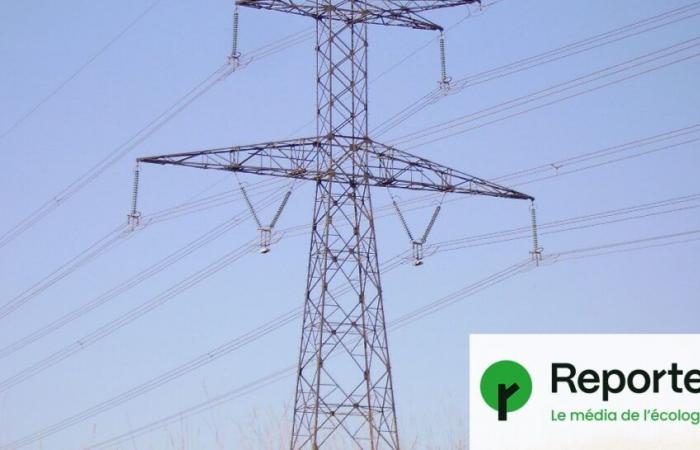This is one of the seemingly invigorating news of 2025: from 1is February, the price of a kilowatt hour (kWh) will decrease for around two thirds of electricity consumers. It must go from 25 to 22 cents, or -14 %. But is this really good news? ? If we look in detail, this drop masks the increases in several of the components of this price. Explanations.
The price of electricity is based on three elements:
- the production of electricity as such (55.2 % in 2024) ;
- the share « networks » (20,5 %) ;
- and taxes levied by the State (24.3 %).
This year, the share « electricity production » decreases. On the markets, electricity prices soared in the winter of 2022, with the Russian invasion of Ukraine and the unavailability of the French nuclear fleet. They have now clearly decreased in just two years, going from 170 euros/megawatt hour (MWh) to 76 euros, or -55.29 % ! What today has repercussions on the price of 1is FEBRUARY.
However, this drop could have been much greater. It is compensated by the increase in the two other components of the price: the shares « taxes » et « networks » of the invoice. On the tax side, it is the excise on electricity that is increasing. Returned to the general state budget, this fell when the government put in place a tariff shield. As it ends, the share of excise duty increases to return to its pre-crisis level. From 21 euros/MWh, it will be increased to 33.7 euros/MWh from 1is February, i.e. +60.5 %. For an average household (which consumes 5,000 kWh/year), this represents an additional annual cost of around 70 euros.
This is a very bad signal according to energy transition experts. « In my opinion, returning to a pre-crisis level of taxation without questioning the merits of this tax is a missed opportunity to send a signal favorable to electrification »analyzes energy consultant Nicolas Goldberg.
According to him, like the habits of the French for moving, heating, entertainment, production, etc. must electrify en masse by 2050, the best signal would be not to « not increase taxes » related to electricity.
However, during the debates around the 2025 budget, Michel Barnier had considered raising taxation to a level higher than that which prevailed before the tariff shield, to bring 3.4 billion euros into the state coffers. This would have had the effect of limiting the reduction in the electricity bill to only 9 %.
The groups La France insoumise (LFI) or National Rally (RN) put significant pressure on the former government, joined by the Minister of Ecological Transition, Agnès Pannier-Runacher. « If we go beyond the pre-crisis level, the risk is that there will indeed be an increase in electricity prices. We must be very vigilant, because modest French people and the middle classes […] will have double punishment. They are often the ones who live in thermal colanders »she declared at the end of 2024.
Compensate for future pharaonic costs
The other hidden increase is in the share « networks » of the invoice. The Turpe, the tariff paid by all consumers for the use of electricity transport and distribution networks, will take 10 % over the period 2025-2028. For a residential customer, this currently represents around 0.06 euro/kWh excluding taxes, or 20 to 30 % of your bill based on the price of electricity. For a family of four, this represents an increase of 80 euros on the bill. Although this increase is notable, it remains lower than the demands of network managers who must make huge investments in the years to come.
Pharaonic investments — nearly 240 billion euros by 2040 — are planned to modernize electricity transmission and distribution networks: connection of offshore wind farms, adaptation of networks to high heat and climate change in general, renovation of aging infrastructure, arrival of renewable energies which require storage solutions or even the electrification of certain industrial zones…
And after ? Difficult to predict the future trajectory of electricity prices ; these depend on too many unknowns such as regulation, the share of taxes, market prices, etc. « The rise in electricity prices is avoidable: it will depend on the regulation and financing choices for the transition. If it is decided that the entire cost is to be borne directly by consumers, there is indeed much to fear… but it is not inevitable »assure Nicolas Goldberg.
The price of energy has become a very politically sensitive subject: according to the Energy Poverty Observatory, 75 % of French people have restricted their heating at home to avoid soaring bills.
legend






